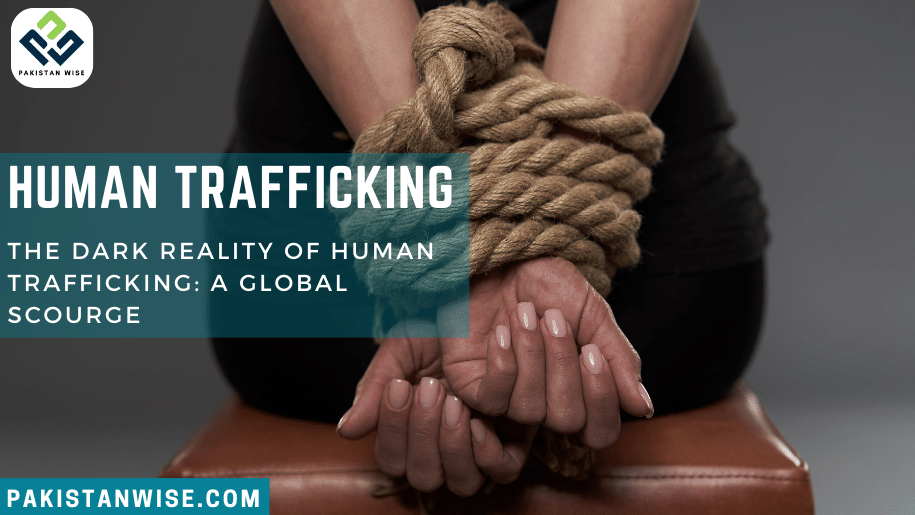In today’s interconnected world, where global economies thrive and borders are traversed effortlessly, there exists a dark reality that preys on the vulnerable: human trafficking. This modern-day scourge has become one of the most lucrative black markets worldwide, with an estimated worth of a staggering $150 billion. To put this into perspective, it is nearly three times the GDP of Azerbaijan. Although this estimate is nearly a decade old, the rate of trafficking continues to rise, casting an ominous shadow on countless lives.
Nowhere is the impact of human trafficking more evident than in southern Asia. Countries such as Pakistan, Afghanistan, India, Nepal, Bangladesh, and Maldives bear the brunt of this pervasive prison. When we hear the words “human trafficking,” we often envision women and children confined in containers, destined for a life of slavery. However, the truth is that it exists in almost every industry, from domestic work to agriculture, mining, fishing, and even commercial sex work. Some forced marriages are also considered human trafficking.
The root cause of human trafficking is often extreme poverty, where individuals live on less than $1.9 a day. In Pakistan alone, the Asian Development Bank estimates that 2.4 percent of the employed population lives on less than two dollars a day, putting at least 1.77 million people at risk of falling into the clutches of human trafficking.
According to the Global Initiative Against Transnational Organized Crime, there is a distressing medium to high incidence of women being smuggled to Gulf States, where they fall prey to sexual exploitation. However, it is crucial to note that human smuggling leading to trafficking does not permanently embed the victims in the Gulf. Rather, it tends to be seasonal or occasion-specific.
Media reports have also shed light on a distressing phenomenon where women are lured into marriages and subsequently sold into prostitution. Shockingly, an average bride can generate significant sums ranging from 25,000 to 65,000, while their families receive meager amounts like 200,000 rupees. This alarming practice was reported by GeoTV’s National Initiative Against Organized Crime Pakistan.
Pakistan’s involvement in human trafficking extends beyond exporting victims; it also serves as an import hub and transit destination. According to GeoTV reports, educated women, including doctors, from Azerbaijan and Uzbekistan, have been enticed with lucrative job offers in Pakistan. However, once they arrive, their documents are confiscated, and they are coerced into a life of prostitution. These Central Asian women could potentially be smuggled and trafficked further to Gulf and other destinations as human cargo.
The impact of human trafficking on its victims is devastating. They face physical, emotional, and psychological abuse, their rights are violated, and their dignity is stripped away. Many suffer from post-traumatic stress disorder, depression, anxiety, and other mental health issues. Additionally, victims of trafficking are often subjected to dangerous living and working conditions, with little or no access to healthcare or legal protection.
Efforts to combat human trafficking have been made on various fronts, including international cooperation, legislation, law enforcement, and victim support services. Organizations such as the United Nations Office on Drugs and Crime (UNODC) and non-governmental organizations (NGOs) play a crucial role in raising awareness, advocating for stronger legal frameworks, and providing assistance to victims.
Preventing human trafficking requires addressing the underlying causes, such as poverty, inequality, and lack of education. Economic empowerment programs, social safety nets, and educational initiatives are essential in reducing vulnerability and providing individuals with better opportunities and choices.
In conclusion, human trafficking is a global scourge that knows no borders. It preys on the vulnerable, perpetuates cycles of exploitation and suffering, and undermines the principles of human rights and dignity. To combat this grave issue, it is imperative for governments, organizations, and individuals to work together, raising awareness, implementing effective policies, and providing support to the victims. Only through collective efforts can we hope to eradicate this dark reality and create a world where every human being is free from the clutches of human trafficking.

